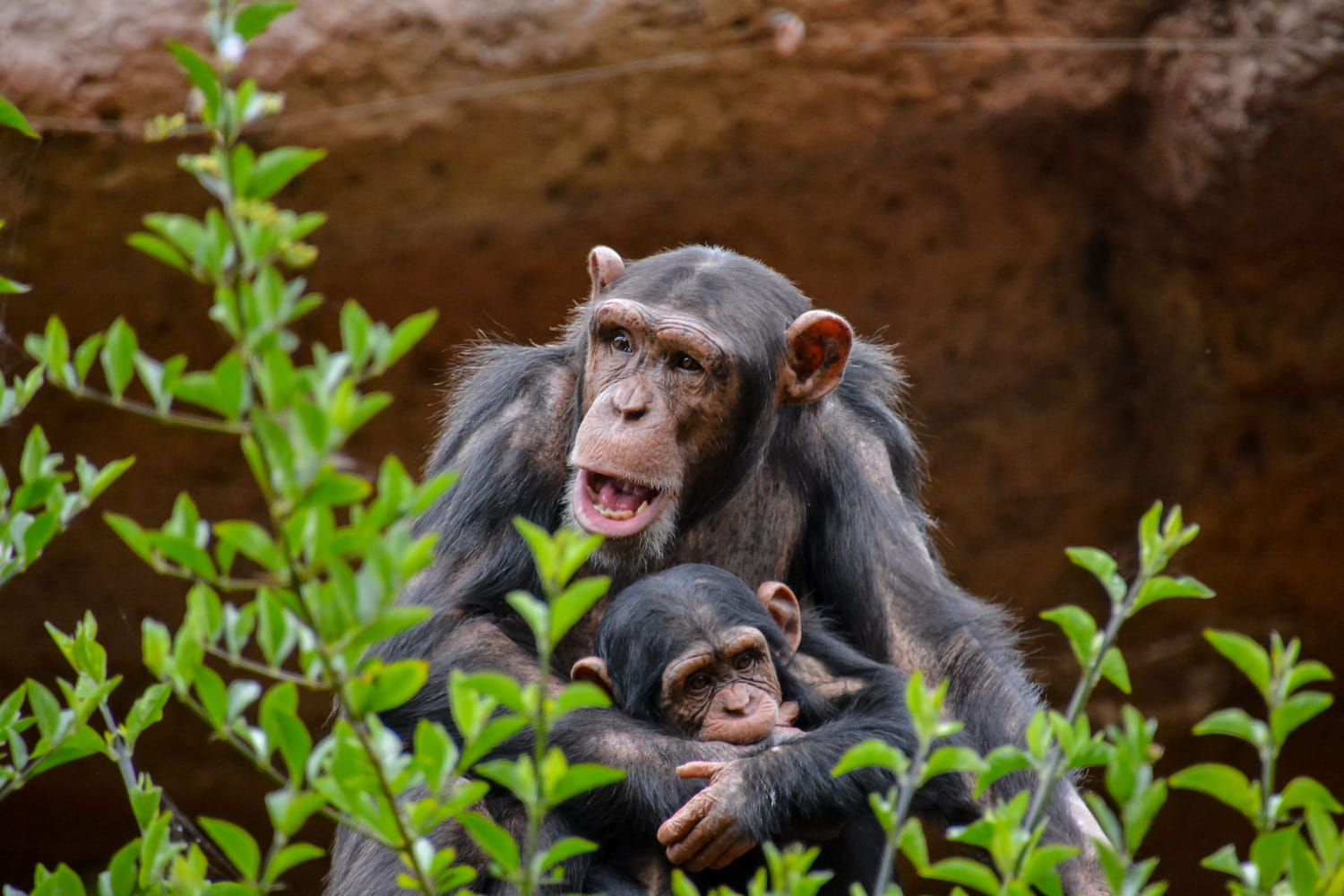For decades, we know that the chimpanzees have shared with us a large part of their genetic heritage. Their intelligence, their sensitivity and their social organization fascinate researchers. But these primates also give us a lesson on parenting. Because contrary to what one might think, some human babies grow up in emotional conditions sometimes less stable than small chimpanzees (early separations, stress …).
For four years, Primatologist Éléonore Rolland, researcher at the Max Planck Institute in Leipzig (in Germany), and at the CNRS Institute of Cognitive Sciences in Bron (in the Rhône), followed young chimpanzees living in freedom in Tai National Park, Côte d’Ivoire. She found that contrary to what we observe in human children, these babies monkeys have no sign of disorganized attachment (when we see recurring violence of the child towards the person who takes care of it). “”In humans, this still represents 23 % of children (these are often children who have experienced a drama). But in the Tai reserve, we have not noticed any behavior of this type. Chimpanzees in captivity can develop such an attachment, probably due to the absence of a person who takes care of them permanently. In nature, the constant presence of the mother and a social structure seems to protect them “she explains in her study published in the journal Nature Human Behaviour. A major discovery, which raises questions about the emotional bases of our own parenting.
This close link between the Chimpanzee mother and her little one is first explained by a logic of survival. In the jungle, staying close to your mother is to avoid predators, benefit from shelter, care, protection and learning. This is why the little ones spend almost all their time stuck to their mother. They sleep together, eat together, move together. “”Young people are ultra-dependent until their five or six years. Then they still remain very attached to their mother until their ten or twelve years. At this age, the males remain in the group, the females leave him to find a new one and become mothers in turn“, Specifies the researcher. The attachment is therefore a vital necessity, anchored in everyday life, without external interference. Other chimpanzees show a more secure attachment: they explore their environment with confidence, while counting on their mother if necessary, and some little ones are distinguished by more distant behavior. They tend to be more independent and do not seek the comfort of their mother, Age. “So we have a fairly wide range, which looks like our societies,” comments the researcher.
This study is not limited to a simple comparison between humans and chimpanzees. According to the authors, it brings “essential lighting on the roots of human social behavior” and illustrates the evolution of attachment behavior through species. As Catherine Crockford, scientist at the Max Planck Institute and co -author of the study explains, “the attachment strategies shared in primates could reflect a common evolving heritage. In addition, the high prevalence of disorganized attachment in humans and orphaned chimpanzees in captivity, shows that the environment plays an important role in the formation of the types of attachment.” Rolland, who raises the following question: “Some modern human institutions or certain care practices have moved away from what is best for the development of the child?” A question that invites you to give the center of our priorities a need as fundamental as it is discreet: the attachment link.








